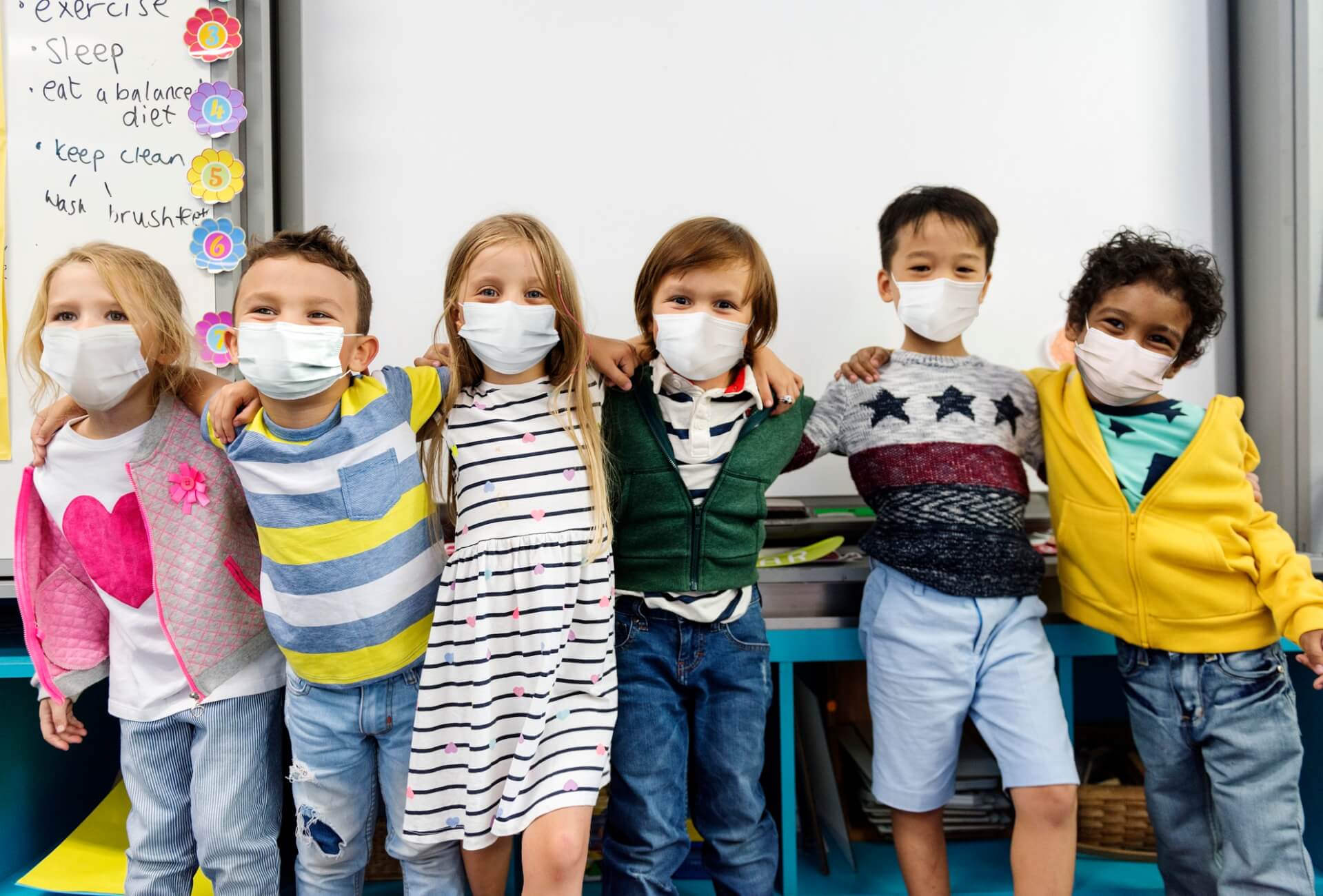You may have long suspected that sleep and ADHD (Attention-Deficit/Hyperactivity Disorder) must be connected.
Parents of ADHD children or adults who have ADHD themselves notice that disordered sleep seems to be a more frequent issue compared to those who don’t have ADHD.
In this podcast, Dr. Emma Sciberras goes into detail about what doctors know about the connection between sleep and ADHD.
Read on to learn about the relationship between sleep and ADHD and how you can mitigate some of the issues that may arise.
Does ADHD make it hard to sleep?

In short, yes ADHD can have negative impacts on your ability to sleep. But it can also exacerbate sleep problems that are unrelated to ADHD.
Dr. Emma Sciberras’ podcast is part of the ‘In Conversation’ podcast series for the Association for Child and Adolescent Mental Health (ACAMH). After nearly 15 years of research on the topic of ADHD, Dr. Sciberras, Associate Professor at the Faculty of Health School of Psychology at Deakin University in Melbourne, Australia, explains that a significant number of people who have ADHD also suffer from sleep problems.
“There’s lots of research which has looked at this over the past decade which has shown that about seventy per cent of children with ADHD will have sleep problems.”
As a researcher, professor, and clinical psychologist, Dr. Sciberras is an expert on the topic. She goes on to explain,
“If you have both ADHD and a sleep problem, research has shown that symptoms of ADHD are worse, general daily functioning is worse and associated mental health difficulties appear to be worse too.”
Neurodevelopmental disorders, psychiatric disorders, circadian rhythm disorders are all possible impacts if sleep deprivation persists, so it’s something to be taken seriously.
If you’re looking to sleep better at night, there are actionable steps that you can take hours before bedtime to ease some of those sleeping troubles.
5 Important Connections Between Sleep and ADHD from Dr. Emma Sciberras
If you or your child has ADHD and sleep disturbances are affecting daily function, there’s hope.
Learn more about the connections between sleep and ADHD and what you can do today to get a more restful night and a better tomorrow.
1. Beware of obstructive sleep apnea among children with ADHD
While you may associate obstructive sleep apnea with adults, research has shown that it’s one of the more common symptoms among school-aged children with ADHD. This is important to take note of and seek treatment for because it can have horrible side effects, including premature death.
Sleep-disordered breathing is a symptom to take seriously for adult patients as well as children.
“Sleep apnea is actually more common than you’d expect. It’s quite common in toddlers and preschoolers. And research has shown that children who are presenting with those kinds of sleep difficulties, if they receive treatment, you do see a decrease in hyperactivity symptoms.”
The good news, as Dr. Sciberras points out, is that if your child is suffering from this condition, seeking treatment can ease some of the symptoms of hyperactivity.
2. Look for warning signs for ADHD related sleep problems

Dr. Sciberras sees a very strong connection between sleep and ADHD, saying,
“I do think it’s really important that all assessments for ADHD include some kind of brief screen for sleep problems.”
Sleep deprivation can manifest in several ways. She suggests that parents and teachers look for core symptoms resulting from lack of sleep like irritability, grumpiness and kids falling asleep in class despite getting a full night’s sleep.
Dr. Emma Sciberras points the difficulty with this, explaining,
“It can be a bit tricky for teachers to perhaps identify the sleepiness associated with a poor night’s sleep the night before if children are taking stimulant medication, for example, because they might not see as much of the manifestation of some of that daytime sleepiness in the classroom.”
If you suspect a sleep disorder, she recommends speaking with a sleep expert or with your regular medical experts.
3. Implement better sleep hygiene
Essentially, sleep hygiene means optimizing not only your sleep environment but also your behavior surrounding sleep. Better management of sleep hygiene usually results in improvements in sleep.
Dr. Sciberras recommends,
“minimizing caffeine use, for example, minimizing screen time before bed, trying to avoid really changing the sleep pattern from weekdays to weekend.”
She suggests these because stimulants can keep you awake. Likewise, blue light and bright lights from screens can disrupt melatonin production, keeping you awake.
For improved sleep, implementing a regular sleep time and a consistent bedtime routine is important. For more anxious children and adults, breathing exercises, meditation practices, and relaxation techniques are recommended.
Sleep diaries (a place where you record how many hours of sleep you get, sleep habits, sleep onset delay, poor sleep symptoms, whether you have taken stimulants etc.) are also a good first step so that sleep specialists have a night-to-night record on which base an assessment of sleep.
Whether it’s for yourself, your teenager, or your younger child, implementing a few better sleep hygiene practices can have a major impact on your sleep quality and sleep duration.
4. Use behavioral intervention tactics to help

“There’s now a number of randomized control trials that have shown some evidence for treating sleep problems in children with ADHD using behavioral interventions, which is really exciting.”
In both children and adults with sleep issues, cognitive behavioral therapy (CBT) can help battle your lack of sleep.
“In that sleep study we found that using brief behavioral strategies led to lasting benefits in terms of sleep, up to 12 months later. But we also found that other aspects of functioning were improved. We saw small improvements in ADHD symptoms. We saw improvements in quality of life.”
For children, she has several easy to implement strategies and sleep cues that are fun and relationship based.
For example, parents often struggle the most with bedtime resistance or children repeatedly getting out of bed. Make a ‘sleep pass’ for the kids and if they come out of their room, they have to give it to their parent. If they don’t use it for a night, parents can reward the kids.
“And when I talk about rewards, I’m talking about little incentives to help children to change some of their sleep-related behavior. And we’re rewarding them for trying some of the strategies, not for actually falling asleep, because that might be outside their control.”
Another behavioral intervention that parents can try is going to check on their child every 2-3 minutes until the child develops an understanding that the parent is there to help. It will also prevent the child from being able to repeatedly get out of bed.
“We do have an emerging evidence base for the treatment of sleep problems in children with ADHD that shows that it is feasible to use behavioral interventions to address some of the sleep problems that are experienced by this group, and that these kinds of interventions do improve sleep and have some benefits for broader psychosocial health.”
5. Understand how ADHD and sleep are linked to anxiety

As Dr. Sciberras explains,
“Sleep and anxiety are really common in children with ADHD. They have an independent impact on functioning for children with ADHD, and it’s really important that they are assessed in clinical practice. So, questions about sleep and anxiety should be included routinely in the assessment for ADHD. But also, should be asked about in review appointments too.”
Sleep-related anxiety can manifest in different ways, whether it’s anxiety about falling asleep or insomnia or a host of other situations. If it’s not dealt with, initial insomnia can become chronic sleep-onset insomnia, which is a much more difficult problem to solve.
Dr. Sciberras suggests to first do everything you can to improve sleep hygiene to set a good foundation for additional behavioral sleep intervention, if necessary.
To Sum Up
The relationship between sleep and ADHD is clear. If you or your child has ADHD and difficulties with sleep, you’re not alone.
To reduce sleep onset difficulties, sleep disturbances and sleep anxiety related to ADHD, Dr. Sciberras recommends speaking with a doctor first, especially for children.
“I think a first step would be for parents to see the usual person or professional that they’re seeing for their child’s care and to go to your next appointment with them to have a chat about any concerns that you have about sleep.”
There is ongoing research in the area of sleep and ADHD and Dr. Sciberras is looking forward to more robust solutions to help people get more normal sleep in the near future.
Want to listen to the full podcast with Dr. Emma Sciberras? Click here.

Welcome to Snoozerville! I’m Dr. Alex Hartley, your guide to the world of restful sleep. With a Ph.D. in Sleep Science and years of experience as a sleep therapist, I’ve dedicated my life to understanding and improving sleep quality. My passion lies in uncovering the mysteries of sleep and sharing practical, science-backed advice to help you achieve the best rest possible. Beyond my academic pursuits, I’m an advocate for mindfulness and relaxation techniques, which I incorporate into my daily routine. At Snoozerville, I aim to transform your nights, combining the latest research with easy-to-implement tips. Whether you’re a chronic insomniac or just looking to improve your sleep hygiene, join me on this journey towards peaceful, rejuvenating sleep.

